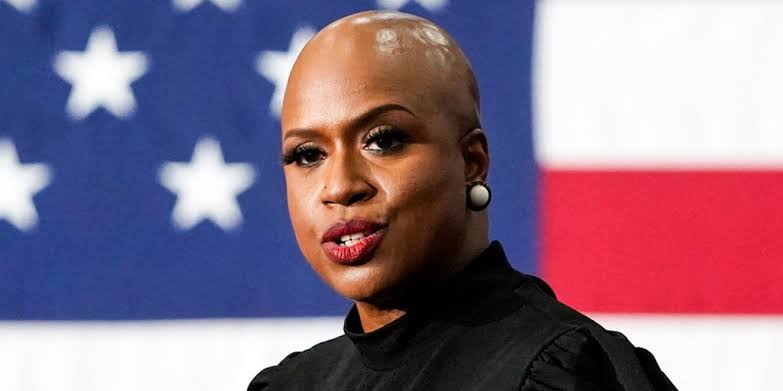By Eniola Amadu
Ayanna Pressley has called on Federal Reserve Chair Jerome Powell to urgently address new labour data showing a disproportionate increase in unemployment among Black workers, particularly Black women.
According to figures from the Bureau of Labour Statistics (BLS), 319,000 fewer Black women were employed in July compared with February, pushing their unemployment rate up by 1.3 percentage points.
The rate for Black men rose by 1.5 points over the same period. In August, the unemployment rate for Black workers climbed to 7.5%, compared with 6% in February, while the national average stood at 4.3%.
In a letter to Powell on Tuesday, obtained by NBC News, Pressley urged the Fed to uphold its mandate of promoting maximum employment for all Americans.
She described Black women’s employment as a “key metric of the health of the U.S. economy” and pressed for the collection of more targeted data to inform public policy responses.
Highlighting that Black women have the fastest-growing rates of college enrollment and entrepreneurship, while also serving disproportionately as family breadwinners, Pressley warned that the current trajectory poses risks to the broader economy.
“The current economic outlook is a glaring red flag that forbodes danger for the entire country,” she wrote.
Speaking in an interview, she reiterated that “when the rest of the country gets a cold, Black folks get pneumonia,” stressing that systemic inequities make economic shocks more severe for Black households.
Pressley raises concerns
Pressley also raised concerns about the Federal Reserve’s autonomy following President Donald Trump’s dismissal of Fed governor Lisa Cook, the first Black woman to serve on the board.
Cook has filed a lawsuit challenging the decision. Pressley linked this to a wider rollback of Black leadership across government institutions, calling it “a moment of antiblackness on steroids.”
Labour analysts say structural barriers, declining entry-level jobs, cuts to diversity, equity and inclusion (DEI) programmes, and the rise of artificial intelligence in hiring are compounding the challenges for Black workers.
Valerie Rawlston Wilson, a labour economist, noted that Black women are especially vulnerable because they make up 12% of the federal workforce—double their share in the overall labour market.
With around 70,000 federal workers separated from their jobs this year following Trump’s workforce overhaul, losses have hit Black women disproportionately.
Pressley said she has spoken with former staff from agencies such as USAID, the Consumer Financial Protection Bureau, and the Departments of Education and Health and Human Services, who expressed concern about “unfinished work” left behind. These included unadministered grants for affordable housing, stalled medical research, and consumer protection cases left unresolved.
“This is not happenstance,” Pressley warned. “It is targeted harm, precise and deliberate. And eventually, this harm will come for everyone.”



